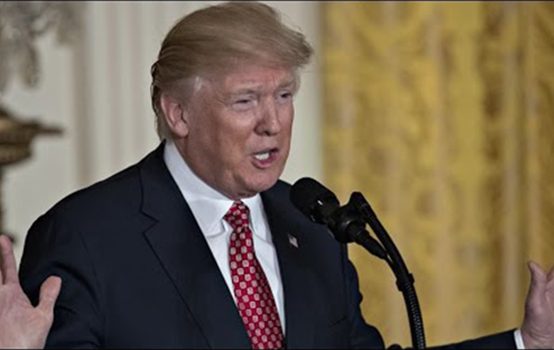Trump’s Foreign Policy and U.S. ‘Leadership’

Dan Drezner weighs in on the debate over whether the U.S. under Trump is “abdicating” global “leadership”:
First, there are other components of power beyond guns and butter. Second, leadership in world politics is about power and purpose. The Trump administration has been derelict or worse on the latter.
On the power dimension, soft power matters as well as hard power. Trying to get other actors to want the same things you want is a useful trait, and I fear that the Trump administration’s God-awful messaging guarantees that won’t happen.
Drezner makes some fair points, and he makes a good case that Trump’s foreign policy is a very incompetent, harmful one that is making it harder for the U.S. to obtain cooperation from other states. I would say that U.S. “leadership” as conventionally understood is still intact and will be for the foreseeable future, but that Trump’s conduct of foreign policy–if it continues this way–will leave us with a worst-of-both-worlds situation in which the U.S. is still obliged to do all the same things it has been expected to do while having even less influence with other governments than it does now. Trump isn’t ceding America’s “leadership” role. He’s just doing a terrible job when he tries to exercise that leadership.
Trump is managing to find a way to antagonize allies without reducing our liabilities, and at the same time he is stoking tensions with adversaries while increasing support for and entanglement with irresponsible clients. This is not really a foreign policy of “retreat” or “withdrawal” any more than Obama’s was. It appears to be a foreign policy of fruitless confrontation for its own sake. This not a case of putting American interests first. It is picking fights with lots of other countries regardless of the benefits and costs of doing so and declaring victory without having any success.
As for the charge that the U.S. is abandoning its “leadership” role, I am much more skeptical. After listening to hawks bemoan an “absence” of American “leadership” for eight years under Obama, I know that most complaints of this kind are rooted in either partisan hostility and/or policy disagreement. A president isn’t “leading” when he is doing something a pundit doesn’t like or when he isn’t doing something the pundit thinks needs doing. Decrying a “lack” of “leadership” and demanding more is the go-to move for any critic who wants to bash a president’s decisions without engaging with the substance of those decisions. It gives a critic something to say without having to say much of anything. It is worth noting that Fareed Zakaria, one of the people declaring the Paris agreement withdrawal as proof that the U.S. “resigned as leader of the free world,” also gushed that Trump finally became president when he ordered an illegal attack on the Syrian government. If that is what “leadership” means to many of our foreign policy pundits, perhaps we would be better off with less of it in any case.
When a foreign policy pundit declares that U.S. “leadership” has been brought to an end by this or that action, he is often just saying that he thinks the current president is conducting foreign policy the wrong way, and “leadership” talk usually frees the pundit from having to explain anything else. The problem the critic has is not that the U.S. has ceased to “lead,” but that the president is leading the U.S. in the wrong direction. It would be more useful and it would save us all a lot of time if critics of this or any other president’s actions would skip laments for lost “leadership.”
Comments